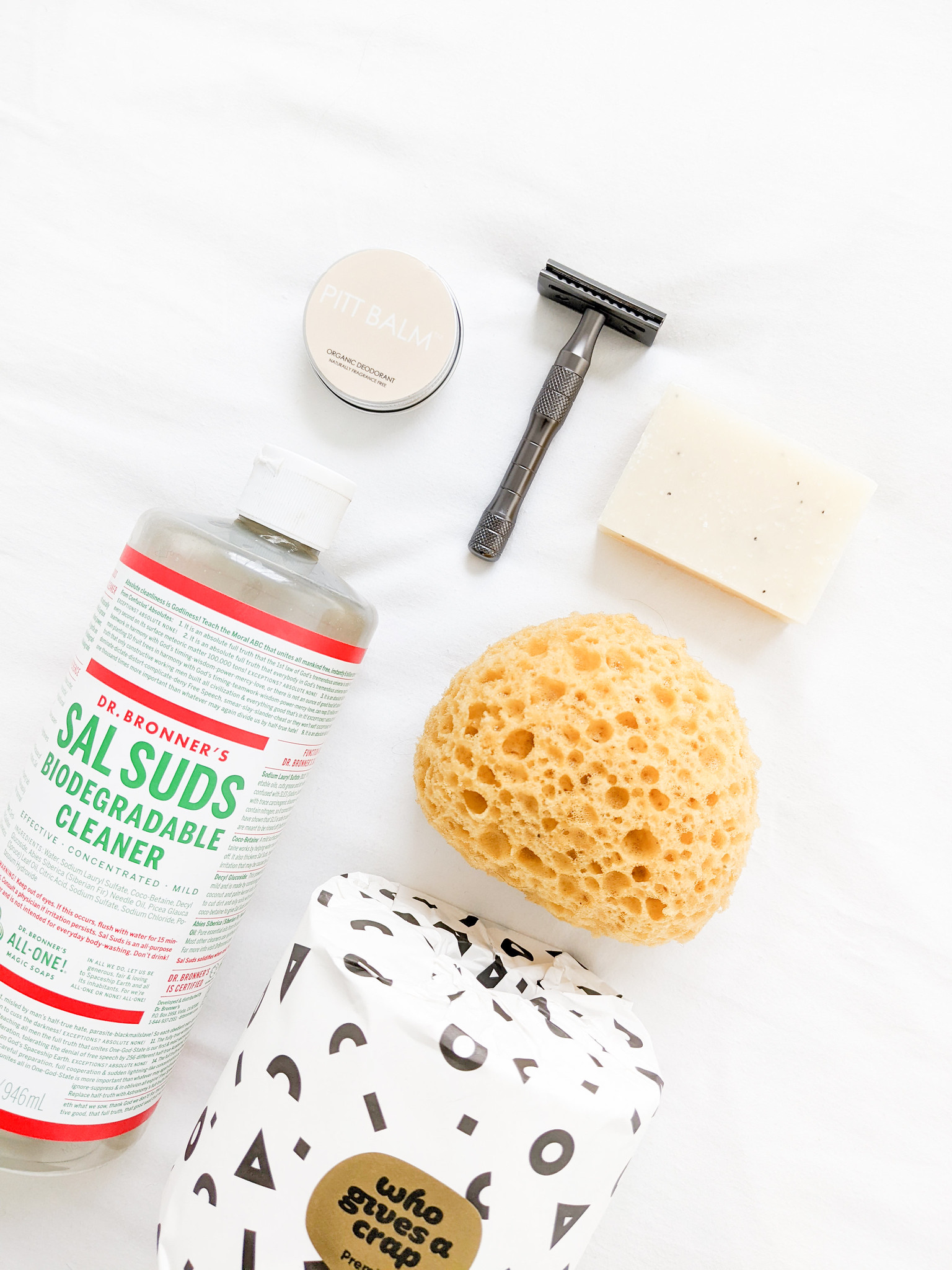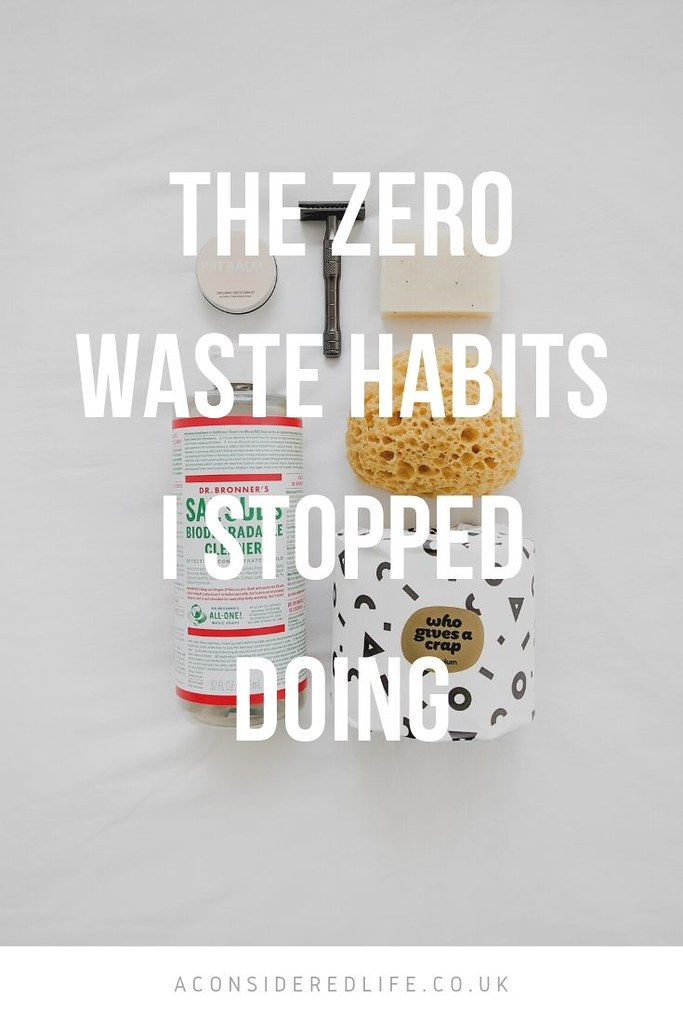
Living a zero waste lifestyle takes a lot of effort. It often requires sacrificing convenience and efficiency for a less wasteful, more eco-friendly result. It's not always pretty, and it's rarely ever easy. Having to make these choices on a daily basis, to compromise or go without, can drain your energy and make you feel pretty miserable.
I've been trying to live a low waste life for several years. Way back in 2016 I made the first of many switches to make my daily habits and household chores more Earth-friendly, by shopping with sustainable brands and replacing disposables with reusables. It's been a bumpy journey with some very successful habit shifts. I've also realised that some things don't work for everyone.
These are the zero waste habits I no longer have, and why.
Feeling Guilt
I've been writing about sustainable fashion and zero waste living for several years now. The more I learn, the more I realise there are no simple answers. It's very difficult to come up with a choice that works for everyone. The meaning of 'sustainable' and 'ethical' comes down to a combination of facts and personal boundaries. You're never going to be able to make a choice or purchase that is 100% perfect because we live within a system that is designed to exploit people, non-human animals, and the planet. I used to feel immense pressure to avoid all waste to the point of making my life harder than it needed to be. I would agonise over every decision I made, and for what?
I believe we're all responsible for making better choices but that doesn't mean crushing ourselves under the weight of misplaced guilt. We can only do so much as individuals. Depriving yourself of small joys for the sake of a tiny bit of waste won't make the world a better place. Neither will shaming people change the fast fashion brands unethical practices. Doing your best is good enough.
Bulk Shopping In Person
I used to make the 4 mile round trip on foot to my local zero waste store every week. Not only was it time consuming and exhausting to walk that distance with heavy bags full of glass jars, it was also incredibly inconvenient. But I did it because it felt great to buy packaging-free staples from a small independent at a price that was cheaper than big supermarkets. The bulk shop was in an awkward part of the city, and suffered a huge loss in footfall during the pandemic.
It ended up closing, and while they have other branches in the suburbs, going out of my way to shop there doesn't make economical sense. It's a shame because we actually have a car now, and making the trip would be much easier. But driving out of the city to visit one store is the opposite of eco-friendly. I still bulk buy pantry staples in eco-friendly packaging where possible, I just can't do that from a zero waste store anymore.

A Washing Bag
These microfibre catchers always receive great reviews from eco-influencers. If you do a little digging you'll find customer reviews are a little less impressive. The purpose is to catch microfibres that synthetic clothing sheds in the washing machine, preventing them from entering the water stream.
I haven't had a great experience with mine, and stopped using it after only a couple of months. I found barely any clothes could fit into the bag, which meant I had to do several loads instead of two. Even with the bag half full, it frequently caused an imbalance in the machine from the weight of the wet clothing. If the cycle wasn't disrupted (which it often would and had to be restarted), the clothes would come out sodden and take entire days to dry. The whole process was a frustrating hassle.
Reusable Cotton Rounds
I had a lovely set of washable cotton rounds. They were plump, and perfect for cleansing. I liked how compact they were without compromising on their efficiency. After a few years of use, I needed to replace them and could only find super thin rounds that weren't as good. It seems like every brand now only makes this type of cotton round without a cotton filling inside. I made a few myself from scrap fabric but they weren't as effective. I've now switched back to using cotton flannels. They're bigger, more useful, and equally as eco-friendly—they're cheaper too since they're not marketed in the same way!
A Menstrual Cup
This is a super popular switch for a lot of people, and I understand why. It's an affordable purchase that will save you significant money, and prevent a considerable amount of personal waste. Praise is heaped upon menstrual cups to the point where there's little discussion about why it might not to be an option for some people (and a fair bit of shaming too). Menstrual cups don't work for my body or my flow. I have PCOS, which means my periods are unpredictable.
All the cups I tried were awkward to insert no matter what technique I used, and very rarely appropriate for my flow. The real deal breaker for me though was that using a cup made my cramps worse. Thankfully there's plenty of ways to have a low waste period without using a cup. I now use a DAME Reusable Applicator with eco-friendly tampons. I'm also subscribed to Daye CBD tampons to help with menstrual cramps.

